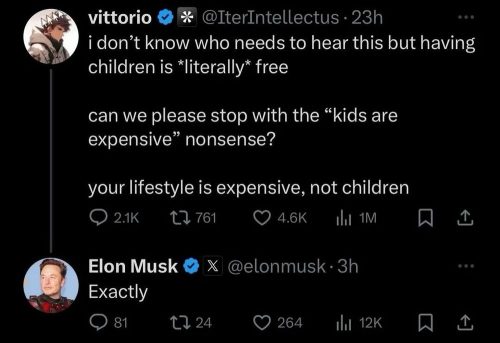In my previous post, I suggested that there was an inverse correlation between intelligence and wealth. Look! I got another data point!

i don’t know who needs to hear this but having children is *literally* free
can we please stop with the “kids are expensive” nonsense?
your lifestyle is expensive, not children
Elon Musk: Exactly
Speaking as a parent, we basically drained our life savings to raise three kids. And that was with public schools and a lower class lifestyle.
Speaking as a biologist, there’s a vast literature on energy budgets and the cost of reproduction.
Children have never been free. Maybe they seem free to billionaires for whom the expenditures on food and nannies and private schools and so forth are a tiny fraction of their ill-gotten wealth, but they really aren’t.
Maybe really rich people think their kept women pop out larvae that scuttle off into the woodwork to forage on pigeons and rodents, only to emerge years later with a magical trust fund, but that doesn’t work for the rest of us.











